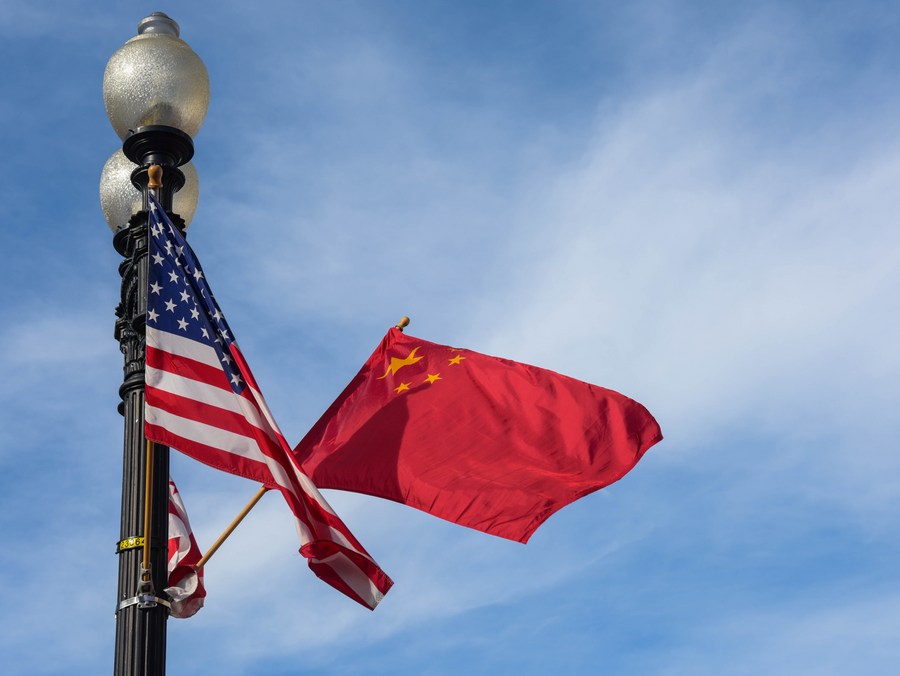Trade viewed as essential on goodwill front
By YIFAN XU in Washington | China Daily | Updated: 2022-08-13 06:52

Economic sphere key to efforts to rebuild China-US trust, experts say
Sound economic and trade relations between China and the United States are essential for rebuilding political goodwill between the two nations and for efforts to promote a stable global economy, experts say in the wake of the damage wrought by the visit of the top US lawmaker to Taiwan.
"I think the economic and trade relations will remain a linchpin in the US-China relationship. There is a certain dynamic there, which is somewhat impervious to political manipulation," William Jones, the chief of the Washington bureau of Executive Intelligence Review, told China Daily.
Another keen observer of China-US relations, Sourabh Gupta, said:"The US and China make up two-fifths or more of the global economy, and along with the European Union, are the essential growth motors of the global economy.
"It is essential, therefore, that even if bilateral economic channels are gummed up or underperforming, these three economic regions engage at least in macroeconomic coordination of their fiscal and exchange-rate policies as well as debt forbearance practices vis-a-vis developing countries, under a trilateral coordinating mechanism or under the aegis of the G20," said Gupta, a senior Asia-Pacific policy specialist at the Institute for China-America Studies.
Against the backdrop of heightened tensions following the visit by Nancy Pelosi, the speaker of the US House of Representatives, to Taiwan on Aug 2, Gupta added:"Longer-term, the global economy, as well as the international monetary and financial system and the international trading system, can never be stable and healthy and work to the benefit of all if these three behemoths, the US, China and the EU, cannot find a way to engage in economic exchanges productively and coexist peacefully."
Pelosi's visit to the island, as part of an Asian tour, violated the one-China principle and elicited stern countermeasures from China. In addition to the People's Liberation Army holding military exercises, with live-fire drills, in the waters around the island, the Chinese Foreign Ministry announced on Aug 5 eight countermeasures.
Before the flashpoint of the Pelosi visit, trade between China and the US showed continued improvement in June, according to data from the US Census Bureau. And China's exports to the US have been increasing over the years, despite the trade tensions and increased tariffs brought in during the presidency of Donald Trump. Jones called the robustness of trade "something of a permanent feature in the economic relationship".
"While there are all sorts of loose talk about decoupling from China economically, this is really more of a total fantasy than a reality. US-China trade is a fundamental basis of the international division of labor on which prices, production and productivity depend, here in the United States as well as in China," said Jones.
"If you try to cut into it by reconfiguring supply chains, it will have a decidedly negative effect on all three. In one sense, the economic ties provide the fundamental basis of the relationship."
However, Gupta said that ties at the government level between the US and China concerning trade and economics are poor.
"They are poor because the (Joe)Biden administration has deliberately shied away from engaging in a robust dialogue with Chinese counterparts," he said.
'Lack of defined strategy'
"This unhappy situation has to do with both the lack of a defined administration strategy to engage China in a dedicated bilateral economic framework, as well as the desire of the administration to shape the economic environment around China, like the Indo-Pacific Economic Framework and the proposed Chip 4 alliance, to the US' advantage before engaging with China from what it views as a position of relative strength."
Reuters has reported that, according to sources, Biden administration officials are rethinking whether to reduce some tariffs or potentially impose others on Chinese goods. An official was quoted as saying that "the president had not made a decision before events in the Taiwan Straits and has still not made a decision".
Gupta suggests the US should make "a final and positive decision" to remove all tariffs substantially "sooner rather than later".
Well before Pelosi's Taiwan trip, speculation had been growing that the Biden administration may reduce the tariffs.
Jones said that tariff reductions could be among measures that could help to rebuild trust between the two nations.
"The trust between China and the US has been significantly damaged by the Pelosi visit. Rebuilding that will require some work on the part of the US, and I'm not sure whether there is a clear understanding among the Biden policymakers that has to be done," he said.
"The issue of lifting some of the tariffs now placed on China is one measure that would clearly benefit both parties and help revive some of the trust."
























